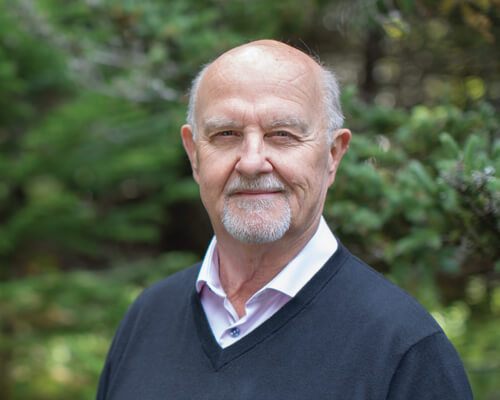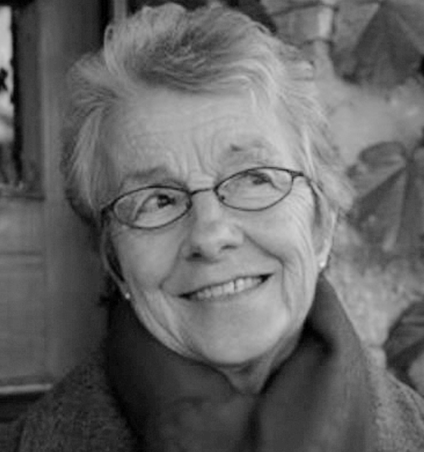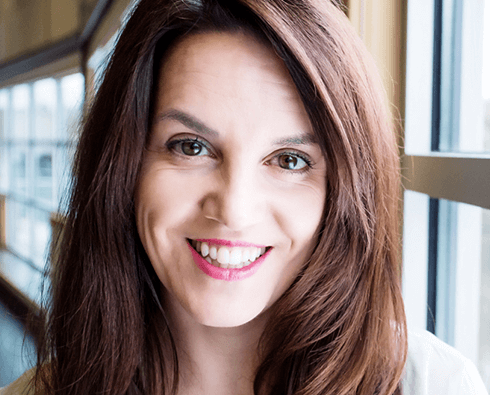Harold
My wife Barb was 61 years old when she was diagnosed. She was a loving and caring mother and partner, had a great sense of humour, was witty and loved to cook, travel, listen to music and dance. She liked entertaining family and friends and enjoyed quality time with those she loved. She was a stay-at-home parent in the children’s primary years and was an incredible mom to our two children.
Our family was not overly surprised with the diagnosis. We had seen a number of initial signs that revealed there was an underlying cause. Initially, we thought she was experiencing hearing loss. However, after testing, the doctor later confirmed the diagnosis of dementia, specifically Alzheimer’s disease.
As a family, we were upset with the findings, and concerned about both Barb’s reaction to the diagnosis and the feeling of the unknown on how the disease would progress. My children were concerned and worried about her, and felt the fear of losing the “Mom” they know. This was true for the rest of the family, sisters, in laws, etc. It was scary to say the least.
Initially it was difficult to talk about the diagnosis, but as we learned to cope it became easier to talk to others. Many people feel that the behaviours they experience with a loved one with dementia are unique to them, but soon learn that others share the common behaviours and it’s okay to talk openly about them. It became therapeutic to share with others on the same path as you realize that you’re not alone even with your own emotions.
The healthcare system
Our family was very fortunate during the diagnosis period, as we had and still have a very good team of medical professionals who go above and beyond to help us through the journey. Barb now lives in a long-term care home and that transition was extremely difficult and challenging. Learning to live alone comes with challenges as well as the advocacy role with those providing care. The healthcare professionals have been good with the resources they have. There just aren’t adequate resources allocated in the healthcare system to meet the ever-growing demand.
Fortunately, our family is able to have additional supports for Barb in the home at our expense to supplement her care. More resources and education are required in the long-term care home setting. We do, however have a number of caregivers who are shining stars, are golden, very empathic and are incredible when days are more challenging than others. As a family, we want them to know Barb as a person and her life before dementia.
People’s reactions
Most were sympathetic and many were very surprised with the diagnosis. Some struggled with what to say when we communicated the diagnosis. I remember one person saying, “I don’t know what to say” – this was an honest and refreshing response from our perspective.
Some unfortunately made light of it, even telling a memory-type joke, which spoke to their lack of understanding of the disease. Or maybe they just didn’t know how to react. One remark that was consistently upsetting was “Barb doesn’t seem that bad, you’d never know she had anything wrong.” While well meaning, it made you question yourself that maybe it’s not all that bad – but it is.
Facing stigma
The term stigma is defined as a mark of disgrace, something that takes away from one’s character, negative stereotyping. We didn’t experience that per se, but as mentioned above we did experience people who made joking remarks that were hurtful and challenging to hear. We focused on treating Barb as we always did and encouraged others to follow our example.
I don’t think that attitudes have dramatically changed in the community. Many people still seem to have limited education on the facts about the disease and how widespread it’s becoming. We’ve heard that “Everyone you talk to has someone they know living with dementia,” yet the general public doesn’t appear to take it seriously – hence the light-hearted responses we sometimes hear when discussing the disease.
Showing support
Be a voice for and with the person you care for. Share their experiences and stories to help build a stronger community understanding. Dementia affects many people and can happen to any family, “why not mine”. Every person in the community has a role to play in advocacy for those living with dementia. These are our loved ones and they deserve to be treated with DIGNITY and RESPECT.
More public awareness on the statistics of the disease is needed. People experiencing the disease need to speak out more, share their journey with others and encourage people to not fear and hide from the diagnosis and instead seek help.
One final thought: Everyone says the disease wins – we say LOVE wins! Hugs are good and were invented to let people know you love them without saying anything.
Media
January 26, 2019: Harold and Barbara – a fork in the road (via The Telegram)
January 28, 2019: Harold and Barbara – two lives in the balance (via The Telegram)
September 19, 2019: Coffee Break Supports Alzheimer Society of Newfoundland and Labrador (via theThe Telegram)
Comments
We may use your information in order to track your relationship with us and our site(s). We do NOT share your information with third parties.

Here are my tips to help you understand:
- Educate yourself! Learn about the disease to improve your coping strategies to live well with dementia. Avail yourself of the Alzheimer Society’s programs and services to give insight into the disease and what to expect. Tell your story which will help educate the public and help other families going down the same path with someone that they care for.
- Seek professional help and support! It’s important to take care of both individuals in the equation and take care of yourself so you can be the best caregiver and advocate.
- Research! Follow the advancements in the disease. Being aware of the research currently being done can help you understand the behaviours of the disease and the advancements in medications.
- Plan! You need to make plans to prepare for the progression of the disease, the varying stages and for your own future. There will come a time where you will need to to park your emotions for the loss you’re experiencing and make a plan for the future, including financial and legal decisions such as powers of attorney and wills, etc.
- Think about volunteering with the Alzheimer Society and other groups in the community. By doing so, you can change the perceptions of your community and better prepare society for the ever-increasing need for care for this disease.
-
More Stories
-

Catharine Ann
2018
Newfoundland and Labrador
-

Peter
2018
Newfoundland and Labrador
-

Roseanne
2019
Newfoundland and Labrador
-

Sara
2018
Newfoundland and Labrador

Noel Nurse 1640 days ago
Harold - I haven’t seen you in many, many years. I was reading this difficult, yet loving and informative story of you, Barb and family. Be strong Harold, you and your family are an inspiration to me and I am sure your first hand knowledgeable comments will assist the many who know little of living with Alzheimer’s. Your friend from the past; Noel Nurse
Dorothy 1855 days ago
I so agree with your remark about hugs. They are so important to show love and support without saying any thing. It's a hard journey, we need love.
Lisa 1869 days ago
So beautifully expressed. Thank you, Harold, for all that you have done, and do.
Jori Warren 1871 days ago
My husband too has early onset Alzheimer's. diagnosed at 53 and is now 59. How old was Barb when she went in to long term care? We too are using every opportunity we can to use ourselves as teaching tools to the public. We have encountered all the same as you in peoples reaction. It is also more difficult with us being the sandwich generation, taking care of our parents, children at home or with new families themselves and having a spouse with Alzheimer's. It being a spouse is so different. We are also advocating with Alzheimer's Society of Niagara and within our new Health systems as a family advisor voice. We need to help make a difference. Our theme has been "We Choose Happy!”